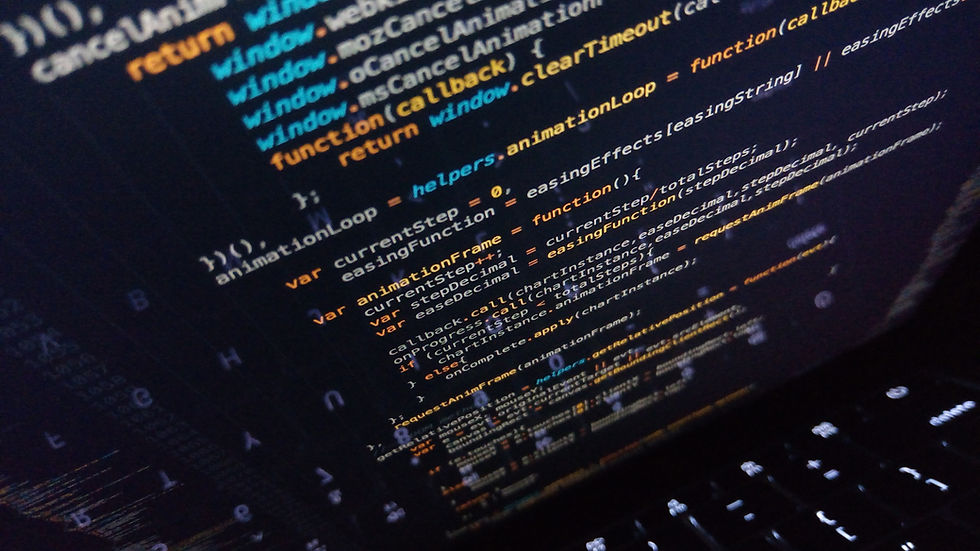How Java Plagiarism Checkers Detect Cheating and Improve Coding Skills
- Codequiry

- Mar 7, 2025
- 4 min read
With coding skills in high demand, ensuring originality in Java programming has never been more important. Code plagiarism is a growing concern in academia and the tech industry. The ease of accessing online resources, open-source repositories, and AI-driven code generators has made it easier for individuals to copy and submit code as their own.
For educators, academic institutions, coding competition organizers, and businesses conducting technical assessments detecting code plagiarism has become a critical task. Manual detection is time-consuming and inefficient, which is where Java Plagiarism Checker tools come into play. These tools streamline the plagiarism detection process, ensuring fair evaluation and saving valuable time.
This blog will explore the rising issue of Java code plagiarism, how Java Plagiarism Checkers work, their benefits, and real-life examples of their impact.

The Rising Issue of Code Plagiarism
Why Plagiarism in Java is Increasing
Java remains one of the most popular programming languages used in academia, software development, and coding competitions. However, the widespread availability of Java-based projects, open-source libraries, and AI-driven code-generation tools has led to an increase in plagiarism cases.
Common reasons for Java code plagiarism include:
Lack of Understanding – Students who struggle with Java concepts may copy code instead of learning the logic.
Time Constraints – Tight deadlines push students and professionals to find shortcuts.
Easy Access to Solutions – Online forums, GitHub repositories, and code-sharing platforms make it easy to find and reuse code.
AI-Generated Code – Tools like ChatGPT and GitHub Copilot can generate Java programs, making it tempting for users to submit them as their own.
Real-Life Incident: Code Plagiarism in a University Exam
A well-known university recently faced a major issue where multiple students submitted identical Java code for a programming assignment. The professor noticed similarities in logic, variable names, and structure, leading to suspicion of plagiarism. Upon running the submissions through a Java Plagiarism Checker, the tool identified that over 70% of the submissions were either exact copies or had minor modifications to disguise similarity. This incident led to stricter policies on code originality and an increased reliance on plagiarism detection tools.
How Java Plagiarism Checkers Work
A Java Plagiarism Checker is a specialized tool designed to detect similarities in Java source code and identify instances of cheating. These tools use various techniques to ensure accurate and fair plagiarism detection.
Key Features of a Java Plagiarism Checker:
Code Comparison Algorithms – Analyze Java programs based on structure, logic, and syntax rather than simple text-based comparisons.
Abstract Syntax Tree (AST) Analysis – Detects similarities even if variable names, spacing, or minor syntax changes have been altered.
Tokenization and Fingerprinting – Break down code into unique tokens, allowing identification of similar code patterns.
Cross-Submission Analysis – Compares code against multiple sources, including previous student submissions, online repositories, and sample solutions.
Detailed Reports – Generates a similarity percentage and highlights plagiarized sections for easy review.
By implementing these advanced techniques, plagiarism checkers help detect even cleverly disguised plagiarism attempts, making them indispensable for academic and professional use.
Time-Saving Benefits of Java Plagiarism Checkers
Manual Code Plagiarism Detection is a labor-intensive process, often requiring instructors and examiners to go through hundreds of code submissions. A Java Plagiarism Checker eliminates this burden and provides several time-saving advantages:
Automated Detection – Instead of manually comparing code files, the tool quickly scans submissions and identifies similarities, saving hours of work.
Accurate and Reliable Comparison – Modern plagiarism checkers analyze code structure and logic, ensuring that even slightly modified copies are detected.
Bulk Processing – Institutions dealing with large numbers of submissions benefit from bulk scanning features, significantly reducing evaluation time.
Seamless Integration – Many plagiarism detection tools integrate directly with Learning Management Systems (LMS) and grading platforms for efficient workflow management.

Best Practices to Prevent Code Plagiarism
While plagiarism checkers are an effective solution, prevention is always better than detection. Here are some best practices to minimize code plagiarism:
For Educators:
Assign unique and personalized projects to encourage students to write original code.
Use plagiarism detection tools proactively before grading assignments.
Teach ethical coding practices and emphasize the importance of integrity in programming.
For Coding Competition Organizers:
Implement strict rules against code sharing and plagiarism.
Use real-time coding environments to minimize external assistance.
Run all submissions through a Java Plagiarism Checker before declaring results.
For Organizations Conducting Technical Assessments:
Use AI-driven plagiarism checkers to verify code authenticity during hiring processes.
Conduct live coding interviews to assess candidates' problem-solving skills.
Conclusion
The rise of online resources and AI-generated code has made plagiarism a growing concern in programming. However, advanced detection solutions like Codequiry, an AI Code Checker, have transformed how code originality is verified, ensuring both efficiency and fairness.
By leveraging machine learning algorithms, deep structural analysis, and seamless grading system integration, Codequiry empowers educators, competition organizers, and companies to uphold coding integrity. With the increasing use of AI-generated code, detecting subtle similarities and modifications requires intelligent solutions. Real-world cases highlight the crucial role of sophisticated AI Code Checkers in identifying and preventing dishonest practices.
For institutions and businesses seeking a reliable Java code plagiarism detection tool, Codequiry offers an industry-leading solution. With its advanced AI-driven plagiarism detection, cross-submission analysis, and ability to check AI-written code, Codequiry ensures accurate, fair, and efficient evaluations. Try Codequiry today to protect originality and promote ethical coding standards.



Comments